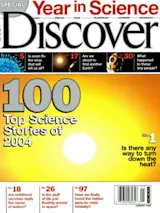When a team of South Korean scientists announced in February that they had successfully derived stem cells from a cloned human embryo, they trumpeted the potential someday to treat disorders from diabetes to spinal cord injuries. They also touched off the most serious moral and ethical debate so far over both embryonic stem cell research and human cloning.
The group, led by Hwang Woo Suk at Seoul National University, cloned human embryos using somatic cell nuclear transfer, a process that biologists have used to clone live animals. Their achievement marked the first time a cloned human embryo developed beyond a few cell divisions and the first time human stem cells had been derived in the process. In somatic cell transfer, the nucleus of an egg is replaced with the nucleus from another cell that contains the full genetic information of an individual. Then the cloned cell is induced to begin ...














